Most people often wonder: Are there hairless rabbits? Are there any notable differences from other breeds of rabbits? Should you get and adopt a hairless rabbit? We will break the ice.
Hairless rabbits exist. There are hairless rabbits, but they are not different from other rabbits. Instead, they are remarkably unique in their little way.
Do you share a fascination with hairless rabbits? Are you thinking about getting one? If you want a hairless rabbit, we dedicate this article to you.
Together, let’s explore hairless rabbits, their appearance, lifespan, care sheet, and food diet. Stay tuned and keep on reading.
What Are Hairless Rabbits?
Hairless Rabbits are a breed of rabbits that possess recessive hairless genes. Hairlessness in rabbits is often caused by genetic mutation and physical and behavioral health problems. Nonetheless, we will dig into more of this later in the middle part of the article.
Hairless Rabbits are bunnies suffering from hair loss called alopecia. This condition starts with tiny falling hairs that eventually become bald spots spreading throughout the body.
Because of this, most rabbits will then end up bald. Hair loss can also cause displeasure, such as itchiness in rabbits.
What Do Hairless Rabbits Look Like?
In general, hairless rabbits look precisely the same as your average bunnies. It’s just more or less than 90% of the hair in their whole body is entirely missing.
They do not have furs or a coat that is covering them. Because of this, hairless rabbits do not have a jacket or a shield.
When winter season knocks on its door, they quickly get cold. Their skin is also crusty and flaky. Since they are hairless, their inflammation and sores are much more tangible and exposed.
The eyes of hairless rabbits often appear in black or red. You can also notice that their eyelids are more open and visible. Typically, there is a bald spot that appears on their forehead.
Are Hairless Rabbits Wonderful Family Pets?
If hairless rabbits form quite an impression on you, and you want to make them your pet, the fantastic news is that you can. While they are bald, these bunnies are no different.
They are nothing but excellent family friends. When you take the time to get to know them and study their gestures, you will find them cute and lovely.
Like other typical rabbits that you can find out there, hairless rabbits are sociable animals. They are playful, lively, and friendly with other pets and rabbits.
Through adequate care and proper training, you will realize that you and hairless rabbits have one thing in common: love and friendship.
Why is There Hairlessness in Rabbits?
Most often than not, we share a love for bunnies because of their irresistible cuteness and lovely charm. However, like other pets such as cats and dogs, these little animals suffer from hair loss because of physical health problems.
To help you, we list here some of the usual causes why your little rabbit is losing its hair.
Dental Problems
Bunnies can be picky about their food. While others like pellets, most rabbits do not like them. Pet parents often let them overindulge in quick snacks such as bites and treats.
Fur loss on the dewlap on their chin and chest can cause hairlessness. Also, saliva burns are one of the top high sources.
False Pregnancy
Hairlessness in rabbits occurs when they feel pregnant and manifest their nesting behavior. They create their nest by pulling out many hairs from their chest and belly. You would glimpse this when they are tugging strands or threads from puffy pillows in sofas. [Rabbit False Pregnancy: Everything You Need to Know]
Urinary Tract Disorders
Urinary tract disorders can cause bladder stones or sludge and infection. Later, these problems will result in hairlessness. Plus, the overall skin condition of your bunnies can become raw and reddish. That will make them appear like newborn baby rabbits.
Bacterial Infection
Fur parents should not let their bunnies be exposed to hot and humid weather conditions. Since their fur is not dry, these bunnies are susceptible to bacterial skin infections.
Plus, their skin will have a lousy odor, making it more breakable and prone to flystrike. You might see some fur loss in the affected parts when this occurs.
Parasite Infestation
Parasite infestation is the top cause of hair loss in rabbits. Since parasites invade the body of your bunnies, these can result in a lot of diseases.
Because of these organisms, rabbits can feel a heavy discomfort caused by itchiness. Trying to get rid of itchiness will make these boo bears rub off and scratch their fur.
Other Causes
The above list may not cover what is truly happening with rabbits experiencing hairlessness. Some of the reasons your bunny has hair loss are because they engage in wild fights with other pet rabbits.
Or due to excessive grooming or shedding. It is still better to talk to your rabbit-savvy vet for further information and advice.
How to Bond with Hairless Rabbits?
Now that you know that hairless rabbits are great companions. Then, you might be asking: What do you need to do to form and share a deep bond with them? Like other bunnies, hairless rabbits can be trained through established patterns and routines.
By establishing daily schedule plans or routines, these hairless rabbits will soon open its heart to you. Remember that since hairless rabbits are prey animals, you need to make them feel safe and at peace.
On top of that, sit, relax, and spend time to know these little boo bears. Always make yourself down to its level when you are communicating with them. This way, they will feel more at ease and less terrified.
The secret to making these hairless rabbits love you is to never force your way with them. Slowly, let them come to you at their pace. Soon, you will realize that you and your hairless rabbits are cuddling and cannot get enough of each other.
How Long Will Hairless Rabbits Live?
The standard lifespan of domesticated hairless rabbits is 8 to 12 years. However, those hairless rabbits born and raised in the wild usually live around 1 to 2 years.
Since domestic rabbits live in the comforts of the home, they can have a long and abundant life. Most rabbits found in the wild are prone to danger and harm. They are vulnerable and exposed to illnesses and predators.
While these rabbits lack or do not have any hair, this does not mean that they would live a shorter life. If these cuddle buds receive good care and nourishment, you will find them enjoying the best life in their most excellent condition.
Like other household pets such as cats and dogs, pet parents should give hairless rabbits optimum and top-grade care in all aspects of their lives. While they carry recessive genes or, by birth, hairless, these bunnies deserve all the love in the world.
While they appear different, they are equally important, like all rabbit breeds. Hairless rabbits are not your average bunnies.
How to Take Good Care of Hairless Rabbits?
Now that you discover why some rabbits are suffering from hair loss, there is a need to know how to take care of these little buddies better. Indeed, they need extra care and protection.
Since they are hairless, these bunnies are sensitive to heat and sunlight. For this reason, they need solid protection from direct contact with sunlight. In the same way, they also will not thrive and do well in cold seasons like winter.
As a pet owner, it will be better to strive to ensure that these boo bears stay and rest in comfortable temperature conditions.
Towels and warm pads can make them feel cozy and safe. However, it would be better to be cautious since we do not want hairless rabbits to have heatstroke or accidental burns.
What is the Ideal Food Diet for Hairless Rabbits?
Hairless Rabbits are extraordinary and unique. That’s why they need extra care and attention. Since these bunny boos are pretty special, pet parents should focus on what foods will help them grow soft hairs again.
Owners should include timothy hay, fresh veggies, and high-quality pellets in the overall food diet of hairless rabbits. Plus, hairless rabbits should always be kept hydrated. Fur parents should provide them with an unlimited water supply at all times.
On the other hand, owners should avoid some foods for hairless rabbits. Pet parents should not let these bunny boos gobble foods with high carbohydrate components like grains.
You should never feed them junk foods and delights such as candies, chips, and cookies. A well-crafted meal plan would help these little ones to recover quickly and be happy.
What is the Average Cost of Hairless Rabbits?
The standard price of rabbits from local pet stores is $20 to $40. However, rabbits found in rescue centers or pet shelters have a lower price. Overall, the average cost depends on what breed of rabbits you would like to have.
Since hairless rabbits are found in unique conditions and situations, they can usually be found at pet rescue facilities. They are much more affordable compared to other rabbit breeds.
Wrap up: Should You Get a Hairless Rabbit as a Pet?
We are all aware that hairless rabbits are remarkably unique and distinct from all rabbit breeds. Nonetheless, no matter how different they are, one thing is sure. Hairless rabbits are equally important.
The power of these bunnies to make you happy are not open to doubt. While they may be experiencing hair loss, they are one of a kind.
They deserve all the love and care that they receive. If you think of getting or adopting hairless rabbits, do not hesitate. They will blossom and become excellent family pets and companions with proper nourishment and a superb food diet.
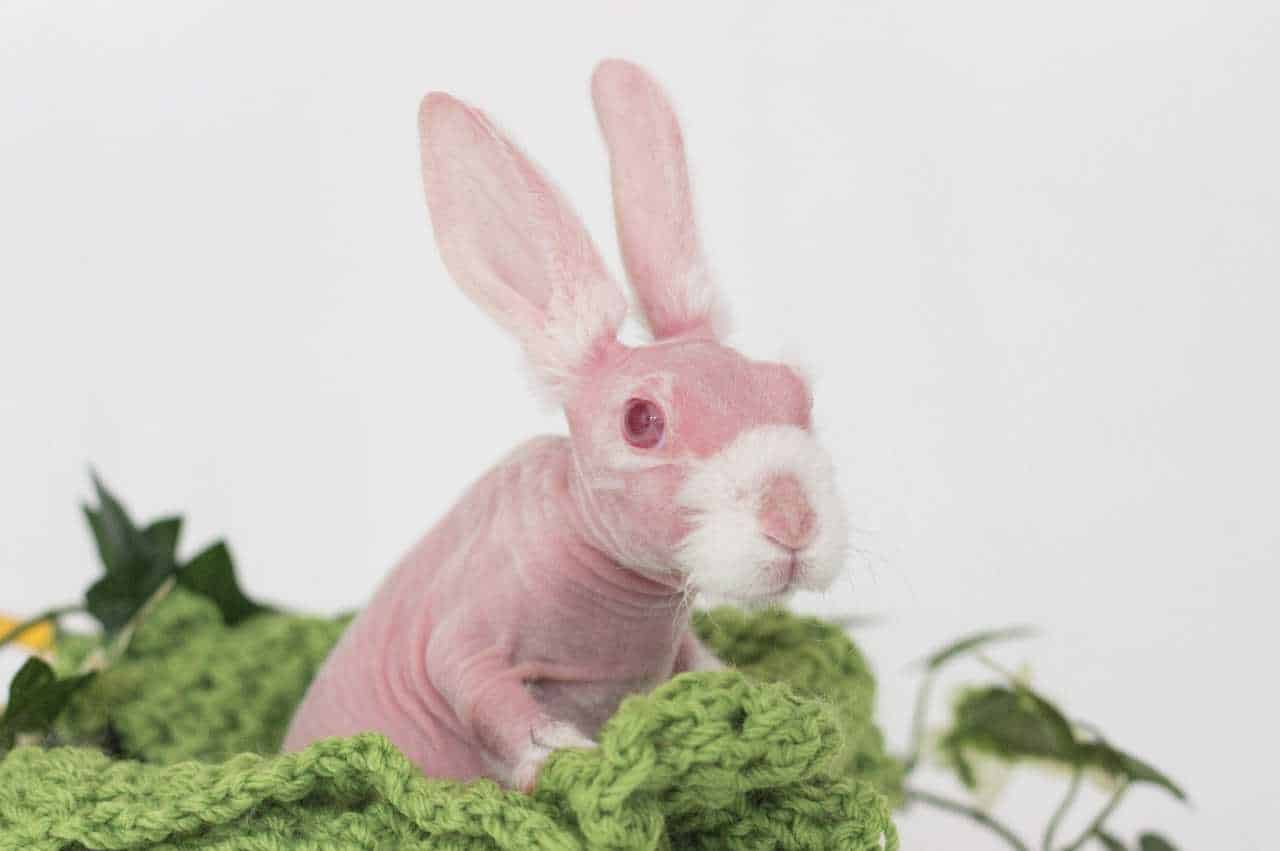
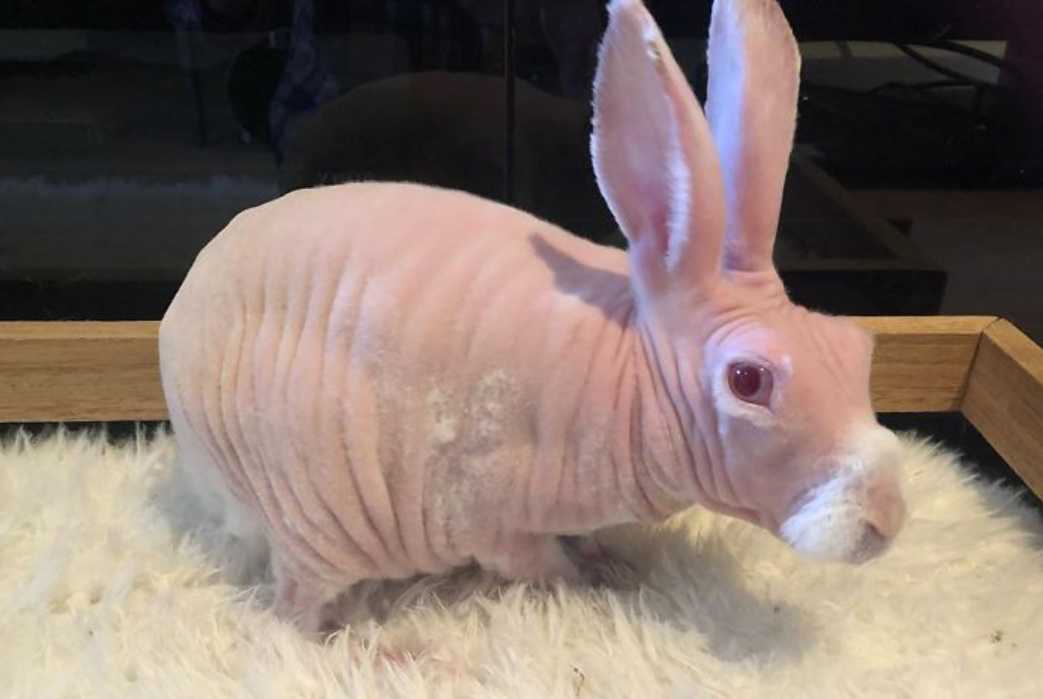
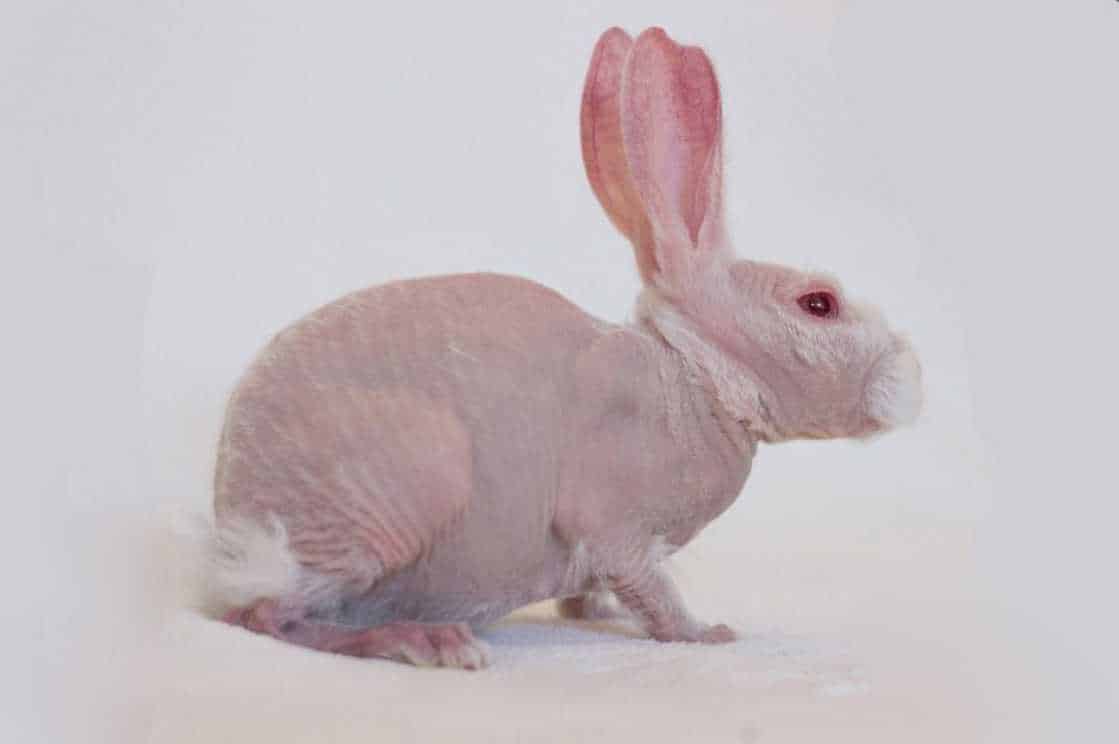
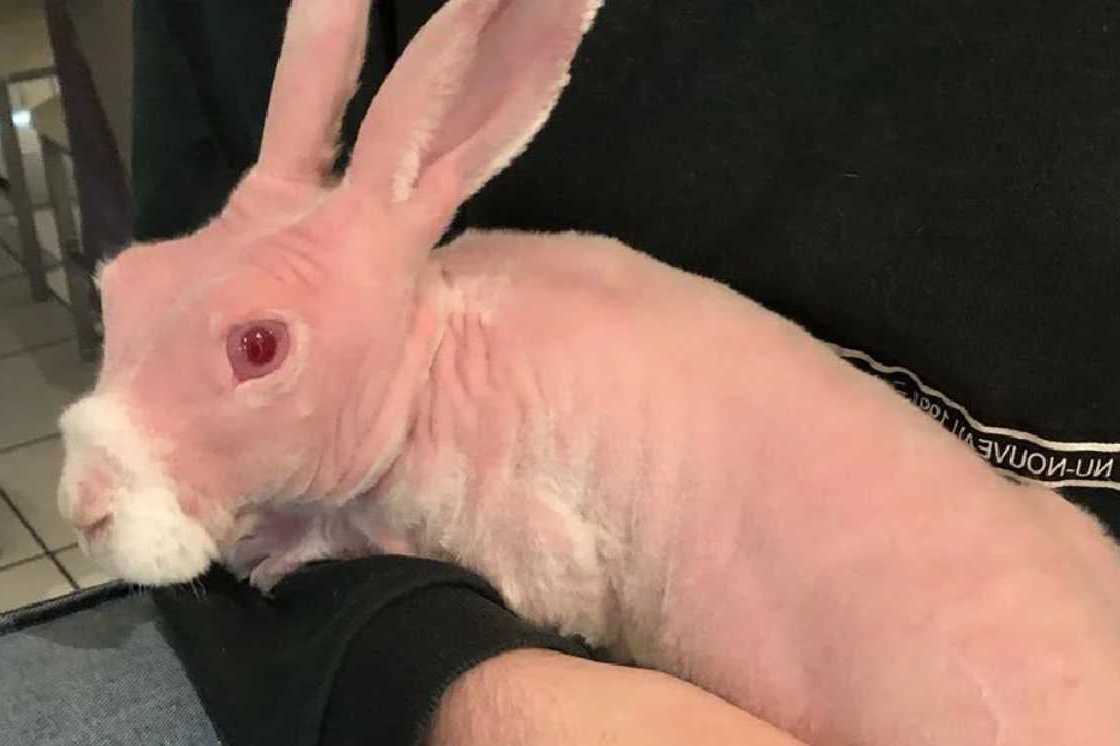
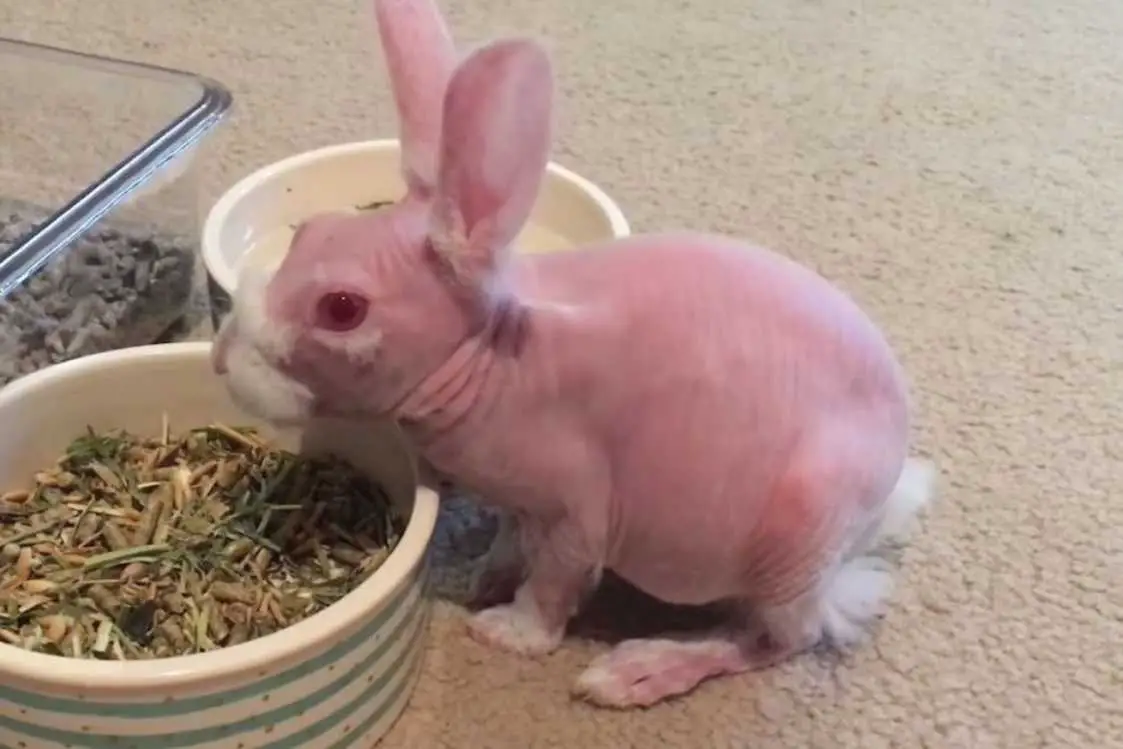
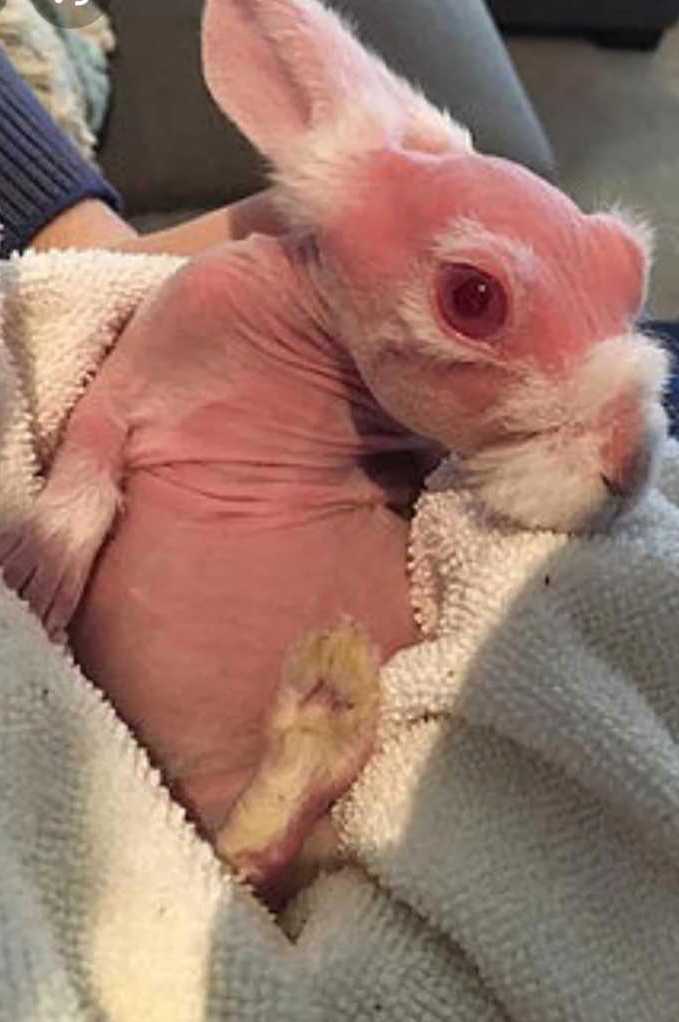
Thanks for this wonderful presentation will likely love to read more of this.